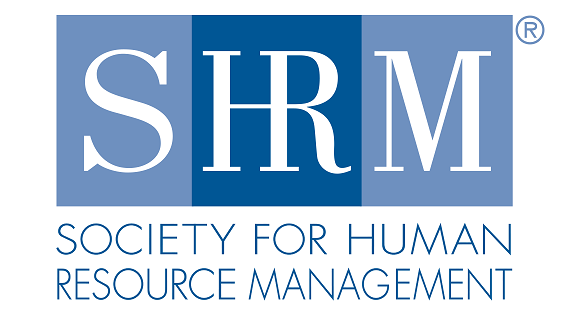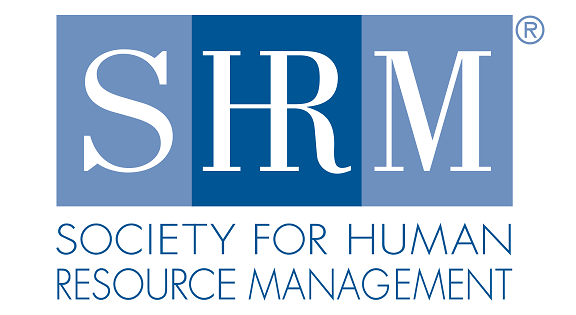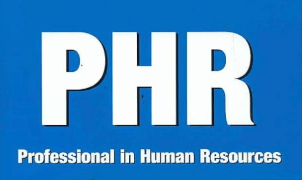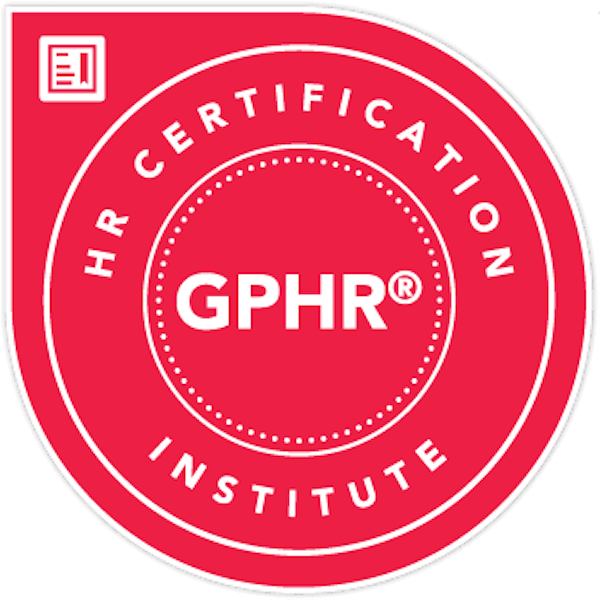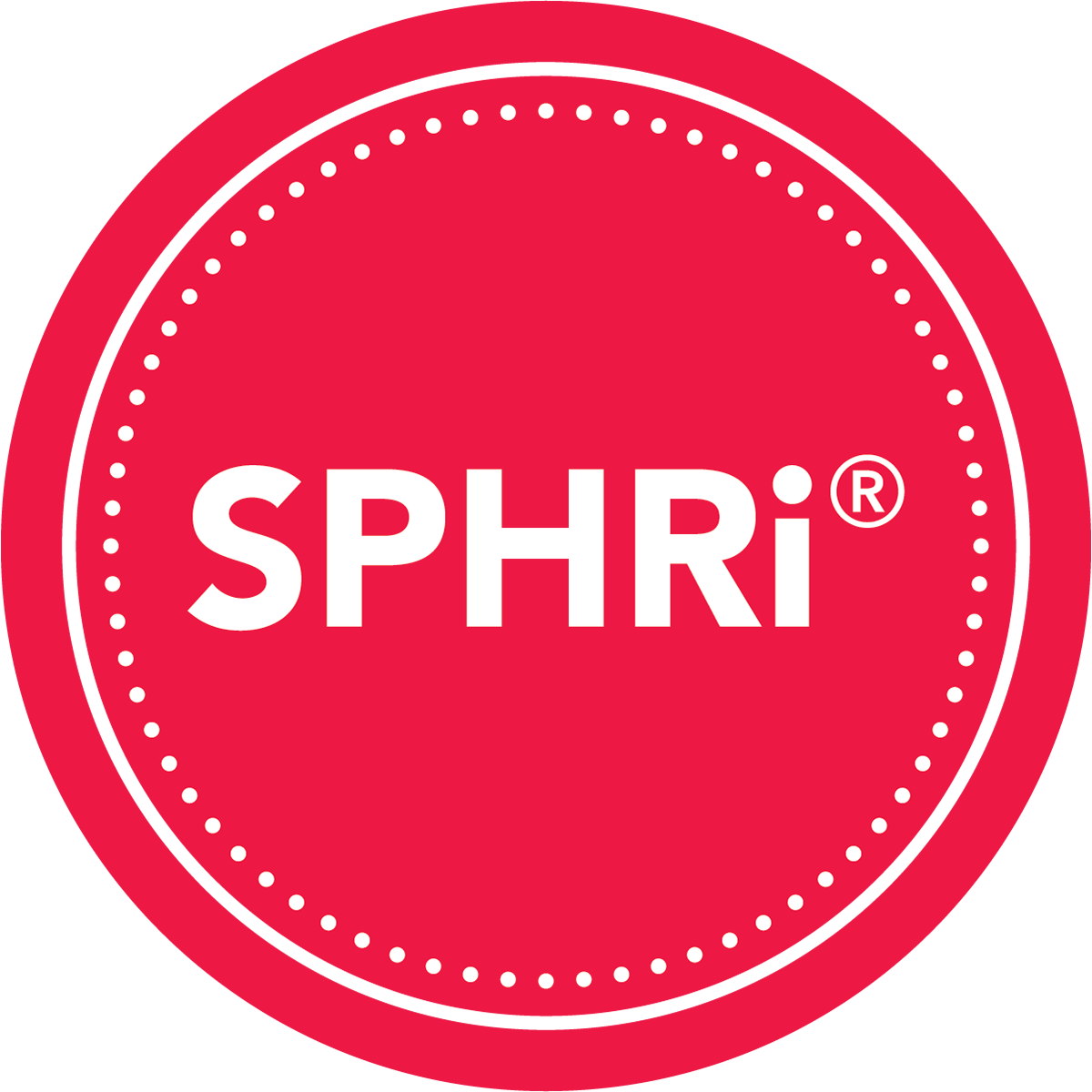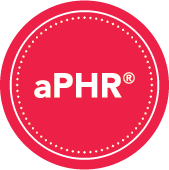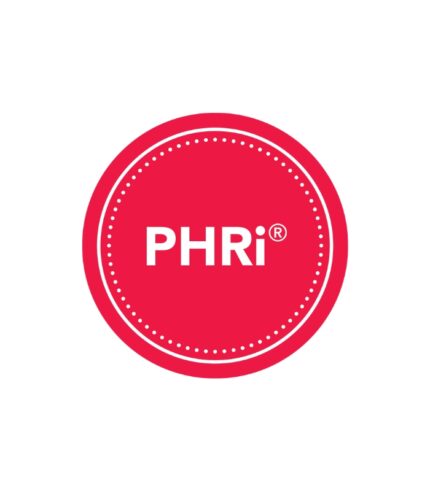Are you ready to conquer the PMP exam and step into the world of project management mastery? Look no further—Prepsaret’s PMP Practice Questions are here to make your prep smarter, faster, and more fun! Packed with real-world scenarios and designed to mirror the actual test, our practice questions are your secret weapon to tackling even the trickiest challenges.
With Prepsaret, you'll feel supported every step of the way. Why stress when you can practice like a pro? Let’s turn your PMP dream into reality—start practicing today!
Start Your PMP Journey Today
Advantage
Normally $95
$76 /2 months
Subjects Included
- PMP
Additional Features
- Over 500 Answered & Explained Questions
- Detailed Analysis of Questions with Answers and Explanations
- Access to Exact answered Questions with explanations
- 24/7 Live chat support
- 24/7 WhatsApp support
- Two Full Months Access
Gold
Normally $140
$111 /3 months
Subjects Included
- PMP
Additional Features
- Over 500 Answered & Explained Questions
- Detailed Analysis of Questions with Answers and Explanations
- Access to Exact answered Questions with explanations
- 24/7 Live chat support
- 24/7 WhatsApp support
- Three Full Months Access

What Are PMP Practice Questions?
PMP practice questions are simulated questions designed to mimic the actual PMP exam's format, style, and difficulty level. They’re like a sneak peek into the big test day, minus the sweaty palms and racing heart. These questions are typically aligned with the latest PMBOK® Guide and the current PMP exam content outline.
A Quick Overview of PMP Certification
The PMP certification is a globally recognized credential awarded by the Project Management Institute (PMI). It validates your ability to manage projects effectively, showcasing skills like planning, executing, and monitoring projects while managing project constraints in a variety of industries.
Earning this certification not only boosts your career but also places you in a league of exceptional project management professionals.
Why Practice Questions Are Crucial
The PMP exam is no walk in the park. With 180 challenging questions spanning multiple domains, it’s designed to test your project management knowledge to the core. Practice questions bridge the gap between theory and application, giving you a realistic taste of what to expect.
Start Studying NowBenefits of PMP Practice Questions
Our comprehensive PMP practice questions cover all the main topics tested in the PMP exam. This allows you to test your knowledge and identify areas that require further review. These topics include:
- Boost Confidence & Ease Anxiety: Practice questions help calm nerves and build confidence, just like training makes race day less intimidating.
- Master the Exam Format: Get familiar with the PMP's unique question types, from scenarios to multiple responses, saving you time and energy on exam day.
- Spot Knowledge Gaps: Identify weak areas, like risk assessment, so you can focus your study time where it matters most.
- Reinforce Learning: Practice actively engages you with the material, making key concepts stick better than just reading the PMBOK®.
- Simulate Exam Day: Timed practice tests build stamina and pacing, so the real exam feels like just another run-through

Pro Tip: Mix and Match Your Study Methods
While practice questions are fantastic, don’t rely on them exclusively. Combine them with other study resources, like flashcards, video tutorials, and study groups. This multi-faceted approach keeps things interesting and maximizes your learning potential.
One More Thing: Celebrate Progress
Every time you complete a set of practice questions, give yourself a little pat on the back. Whether it’s treating yourself to a favorite snack or taking a well-deserved break, celebrating small wins keeps you motivated.
Overview of the PMP Exam
The PMP exam is a rigorous assessment designed to evaluate your knowledge and skills in project management. Here are the key details you need to know:
- Number of Questions: The exam comprises 180 questions. But don’t panic, only 175 of these are scored, and five are pretest questions that don’t count toward your score.
- Time Limit: You have 230 minutes to complete the exam. This means you have approximately 1.28 minutes per question, so time management is crucial!
- Scoring System: The passing score for the PMP exam is not publicly disclosed, as PMI uses a psychometric analysis to determine it. However, it’s important to focus on understanding concepts rather than just aiming for a specific score. The goal is to demonstrate your competence in project management.
Domains Covered in the PMP Exam
The PMP exam is structured around three primary domains that reflect the essential skills required in project management. Each domain has a specific percentage of questions allocated to it:
1. People (42%)
This domain focuses on leading and managing teams effectively. It covers critical skills such as:
- Conflict resolution
- Team building and motivation
- Project Stakeholders engagement
- Leadership styles and techniques
- Communication strategies
Understanding how to manage people effectively is crucial for project managers, as team dynamics can significantly impact project progress and success.
2. Process (50%)
This domain encompasses the technical aspects of project execution and management. It includes:
- Project planning and scheduling
- Risk management plan
- Quality assurance
- Budgeting and cost control
- Agile methodologies and frameworks
Mastering these processes including addressing Project Risks during Initial Project Planning, will enable you to execute projects efficiently and meet organizational goals.
3. Business Environment (8%)
Although this domain has a smaller percentage of questions, it plays a vital role in understanding project life cycles and how projects align with organizational strategy. Key topics include:
- Business case development
- Organizational culture and structure
- Compliance and regulatory considerations
- Benefits realization
This domain emphasizes delivering value through projects and understanding their impact on the broader business landscape. It also highlights the role of the Project Management Plan in achieving alignment with business goals.
Why Practice Questions Align with the Exam Blueprint
Using practice questions is one of the smartest ways to prepare for the PMP exam. Why? Because they’re structured to reflect the exam’s exact blueprint. Here’s how:
- Mimicking Real-Exam Scenarios: Practice questions simulate the format and difficulty of the actual exam, reducing surprises on test day.
- Building Familiarity with Domains: By answering questions tailored to each domain, you can assess your understanding of People, Process, and Business Environment topics.
- Time Management Skills: Practice tests help you improve your ability to allocate time effectively across 180 questions, ensuring you finish within the allotted 230 minutes.
- Boosting Confidence: Consistent practice allows you to identify knowledge gaps and strengthen weak areas, making you more confident and prepared.
Types of PMP Practice Questions
When you sit for the PMP exam, it’s important to be prepared for the variety of question types that will come your way. Knowing what to expect will help you feel confident and ready. Here are the four main types of questions you’ll encounter:
Multiple-Choice Questions
Multiple-choice questions are a staple of the PMP exam and come in two flavors: single-response and multiple-response questions.
- Single-Response Questions: These are straightforward. You’ll be presented with a question and four answer choices. Your task is to select the one correct answer. For example, you might be asked about the key process in project initiation, such as developing a Project Scope Statement.
- Multiple-Response Questions: These questions are a bit trickier! You’ll get a scenario and need to select more than one correct answer from a list. For instance, if asked about the tools used for risk management, you might have to choose all applicable options from a longer list. This requires careful reading and understanding of each choice since there can be several correct answers.
These question types test not only your knowledge but also your ability to differentiate between closely related concepts.
Scenario-Based Questions
Scenario-based questions are designed to mimic real-world project management situations. These questions require you to apply your theoretical knowledge to practical scenarios, which is crucial for success in project management.
For instance, you might be presented with a situation where a project is behind schedule due to unforeseen circumstances. The question could ask how you would address this issue using project management principles and refer to the Project Management Plan as a guide.
This type of question assesses your critical thinking and decision-making skills by putting you in the shoes of a project manager facing real challenges.
Scenario-based questions often make up a significant portion of the PMP exam, so practicing these will help you become comfortable with applying concepts in real-life contexts.
Drag-and-Drop Questions
Drag-and-drop questions add an interactive element to your practice. In these questions, you’ll be asked to match concepts or arrange steps in a specific order by dragging items into place.
For example:
- Arrange the stages of a project lifecycle: Initiation, Planning, Execution, and Closure.
- Match terms like “Risk Management” and “Scope Control” to the correct project phase.
These types of questions test your understanding of project management processes and the relationships between them.
Pro Tip: Practice is key! The more familiar you get with the order of processes and how different concepts are related, the easier these questions will be.
Fill-in-the-Blank Questions
Fill-in-the-blank questions challenge you to recall specific terms or concepts without multiple-choice options. You might see a statement like “The primary output of the Define Activities process is the __________,” where you would need to fill in “Activity List.”
These questions test your memory and understanding of key terms in project management. They are particularly useful for reinforcing vocabulary and ensuring that you can articulate important concepts without prompts.
Benefits of Practicing PMP Questions Regularly
If you're gearing up for the Project Management Professional (PMP) exam, you might be wondering how to maximize your study time and ensure you're fully prepared. One of the best strategies is to practice PMP questions regularly. Not only does this help you get familiar with the exam format, but it also offers several key benefits that can enhance your chances of success.
Enhances Critical Thinking and Decision-Making
Practicing PMP questions regularly sharpens your critical thinking skills. The PMP exam is not just about memorizing facts; it’s about applying your knowledge to solve problems. By working through various practice questions, especially scenario-based ones, you learn to analyze situations and make informed decisions.
For example, you might encounter a question that presents a project scenario where project team members are falling behind schedule due to unforeseen circumstances. You’ll need to think critically about the best course of action—should you adjust the timeline, allocate more resources, or communicate with stakeholders?
Regular practice helps you develop the ability to weigh options and choose the best solution, which is essential for any project manager.
Improves Time Management During the Exam
The PMP exam is a time-bound challenge. With 180 questions and just 4 hours to complete the exam, managing your time wisely is crucial. You need to answer questions quickly and accurately.
That’s where practice questions come in! By regularly practicing under timed conditions, you’ll develop a rhythm that helps you:
- Recognize the easy questions first.
- Speed through the ones you know well.
- Leave the harder ones for last, allowing you to make educated guesses if needed.
The more you practice, the more comfortable you’ll become with the exam's pacing, reducing stress and giving you a better chance to finish in time.
Identifies Knowledge Gaps for Targeted Study
One of the most significant advantages of practicing PMP questions is that it helps you identify knowledge gaps in your understanding of project management concepts. As you work through various questions, you'll likely encounter topics that challenge you or areas where you're unsure of the correct answer.
For example, if you consistently struggle with questions related to risk management or stakeholder engagement, this signals that these are areas needing more focus in your study plan.
By pinpointing these gaps early on, you can allocate more time to review those specific topics, ensuring a well-rounded understanding before the exam.
Top Resources for PMP Practice Questions
The world of PMP prep is filled with countless resources, but finding the right ones that match your learning style is crucial. Whether you’re looking for online platforms, books, or mobile apps, there’s a resource out there for you.
Best Online Platforms for PMP Practice Questions
As you prepare for the Project Management Professional (PMP) exam, having access to quality practice questions is essential. One of the best online platforms you can use to enhance your study experience is Prepsaret.
This platform, along with other trusted resources, offers a variety of practice questions that will help you feel confident and ready for the exam. Let’s discuss some of the top resources available for PMP practice questions.
Prepsaret
Prepsaret is a fantastic PMP test prep platform that offers an expansive set of practice questions, mock exams, and study materials. What sets Prepsaret apart is its user-friendly interface and personalized study plan.
It helps you track your progress with detailed analytics, allowing you to identify your strengths and weaknesses. Whether you're looking to reinforce your knowledge or take full-length mock exams, Prepsaret offers a great way to practice for the PMP exam.
PMI’s Official Website
The official Project Management Institute (PMI) website offers practice questions directly from the source. Since PMI is the organization behind the PMP exam, using their resources ensures you’re getting questions that are true to the exam’s format and content.
PMP Question Banks
In addition to free resources, several reputable question banks offer comprehensive sets of practice questions for a fee. These question banks are designed to provide you with a structured and thorough preparation experience, ensuring you are well-equipped for the PMP exam. Here are some key features and benefits of using paid PMP question banks:
- Extensive Coverage: Paid question banks often include 360+ questions, covering a wide range of topics and scenarios.
- Detailed Answers: Each question comes with clear explanations to reinforce key concepts.
- Exam-Aligned: Updated regularly to match the latest PMI exam content.
- Diverse Formats: Includes multiple-choice, scenario-based, and calculation questions to mimic the exam.
Mobile Apps for PMP Prep
In today’s busy world, mobile apps have become a convenient way to study for the Project Management Professional (PMP) exam on the go. These apps allow you to practice anytime and anywhere, making it easier to fit studying into your daily routine.
Free vs. Paid PMP Practice Questions
When it comes to PMP exam prep, you have two main paths to choose from: free or paid. While both options can be helpful, they serve different purposes.
Features of Free PMP Questions
Easy to Access
Free PMP practice questions are widely available on websites, apps, and social media, though sample sizes are usually limited to 10-20 questions per session. Try out Prepsaret's free PMP practice questions!
Perfect for Beginners
Free questions are ideal for early preparation, helping you get familiar with the PMP exam format without spending money.
Diverse Sources
Access questions from various platforms for a broader experience, though difficulty and clarity may vary.
However, with free resources, there’s one thing to keep in mind: quality control. Not all free questions are up to par with the real PMP exam. While some are solid, others may not be as accurate or reflective of the current exam content outline.
Advantages of Paid PMP Practice Question Banks
- Detailed Performance Analytics
- More Comprehensive Question Banks
- In-Depth Explanations
- Up-to-Date Content
Now that you know the differences between free and paid PMP practice questions, the next step is deciding which one fits your needs.
- If you're just starting, free practice questions can be a great way to get a feel for the exam format and test your general knowledge without any commitment.
- If you’re getting closer to exam day or need more in-depth preparation, paid practice question banks offer the advantage of more structured learning, detailed feedback, and a better sense of your progress.
Ultimately, both options have a place in your study plan. Free questions are great for getting started, but for a comprehensive and effective PMP prep experience, investing in a paid question bank is worth considering.
A great choice is to enroll at Prepsaret, where we offer access to over 2,000 practice questions and answers and organized PMP test prep resources. We have three flexible plans:
These options give you the flexibility to select the plan that best fits your study timeline.
Tips for Using PMP Practice Questions Effectively
It’s not just about answering practice questions, it's about using them the right way. Here’s how you can maximize their impact and boost your chances of taking the PMP exam:
Set a Study Schedule
One of the biggest challenges for PMP candidates is staying consistent with their studies. It’s easy to procrastinate, but creating a PMP exam study plan helps keep you on track and ensures you're using your time wisely.
- Consistency Matters: Practice PMP questions daily—just 30 minutes can make a big impact and boost your confidence for exam day.
- Integrate Questions: Sprinkle questions into your study sessions to reinforce learning and deepen your understanding.
- Keep It Varied: Switch up topics to stay engaged and reflect the diversity of the actual exam.
Simulate the Actual Exam Environment
The PMP exam is a timed test with 200 multiple-choice questions. That means timing is critical during your practice sessions. You need to get used to answering questions quickly and efficiently under pressure.
- Set a Timer: Practice with a timer, allowing 1-1.5 minutes per question to boost focus and speed for exam day.
- Take Full-Length Exams: Simulate the real test with full-length mock exams to build endurance and check your pacing.
- Avoid Pausing: Tackle all questions without pausing to mirror the real exam and strengthen your mental stamina.
Review Correct and Incorrect Answers
The real value of PMP practice questions comes from reviewing your answers, not just answering them. Understanding why you got a question right—or wrong—is how you truly learn.
- Learn from Mistakes: Review wrong answers to understand the concept or question better, so you don’t repeat mistakes.
- Celebrate Correct Answers: Reinforce your knowledge by understanding why you got it right, boosting confidence.
- Identify Patterns: Spot topics you struggle with, like risk or earned value, and focus your studies there.
- Track Progress: Use analytics to monitor performance and adjust your study plan to improve weak areas.
Bonus Tip
One last piece of advice—don’t get discouraged by mistakes. The more you practice, the better you’ll become. Every mistake is an opportunity to learn and improve. Keep a positive mindset, stay patient, and trust the process.
You’re on a critical path to building the knowledge and skills to pass the PMP exam—and you’re getting closer to your goal with every question you answer.
Sample PMP Practice Questions
PMP practice questions are designed to mimic the types of questions you will see on the actual exam. They test your knowledge of project management concepts and help you prepare for the multiple-choice, scenario-based, and other types of questions you’ll face.
Here, we’ll provide you with examples to give you a feel for what to expect.
Example 1
In a marine construction project, the project manager is informed by the marine authority that the work permit will not be issued until certain environmental reinforcement work has been completed. After reviewing the project management plan, the reinforcement work is not included in the project scope management plan.
What should the project manager do?
- Start the organization's change control process via a change request.
- Raise this issue, and review and update the progress report for the next monthly project meeting.
- Communicate with an officer in the environmental protection department to check if it is necessary.
- Organize a meeting with the team and update the work breakdown structure (WBS).
The correct answer is A
The correct action for the project manager to take is to Start the organization's change control process via a change request.
Since the environmental reinforcement work required by the marine authority is not included in the original project scope, initiating a change request is the appropriate step. This formal process allows the project manager to document the need for additional work, assess its impact on the project’s timeline, budget, and resources, and seek approval from relevant stakeholders.
Starting the change control process ensures that all necessary adjustments are made systematically and that any implications of adding this work are considered. This approach maintains project integrity and compliance with organizational protocols while addressing regulatory requirements imposed by the marine authority.
Example 2
A project manager invites the company CEO, project sponsor, team members, and an external client representative to a meeting to review the project management plan. The project manager starts to present the budget, but the CEO suddenly asks to end the meeting. What should the project manager have done to avoid this situation?
- Sent the presentation slides to internal participants first and then to the external client representative before the meeting.
- Reviewed the communications management plan before inviting an external client representative to the meeting.
- Reviewed the cost management plan with internal participants and the CEO before inviting an external client representative to the meeting.
- Performed a root cause analysis with the external client representative and documented the findings in the lessons learned register.
Correct Answer: C
To avoid the CEO unexpectedly ending the meeting, the project manager should have reviewed the cost management plan with internal participants, including the CEO, before involving the external client representative.
This step allows the internal stakeholders to understand and align on budget details in a private setting, addressing any questions or concerns they may have in advance. By securing internal agreement on sensitive aspects of the project, such as budget, the project manager ensures a smoother, more productive discussion when external stakeholders are present.
To truly succeed on your PMP exam, consistent practice is essential. By using PMP practice questions like the ones above, you’ll build a deeper understanding of the concepts, improve your test-taking skills, and feel more confident when exam day arrives.
Remember, PMP practice questions are your secret weapon in preparation, helping you identify weak spots and get comfortable with the types of questions that will appear. So, keep practicing, stay positive, and take the time to review your answers. Every practice question is one step closer to earning your PMP certification!
For More PMP Qs & As Subscribe on Prepsaret
Get Started NowPMP Practice Questions: Your Path to PMP Exam Success with Prepsaret
Embarking on your journey to ace the PMP exam? Practice is your ultimate superpower! Engaging with PMP Practice Questions isn’t just another study tip—it’s a game-changing strategy to master the material, get comfortable with the exam format, and boost your confidence.
Why leave your success to chance? Prepsaret’s carefully crafted PMP Practice Questions are designed to set you up for victory. With realistic scenarios, detailed explanations, and up-to-date content aligned with PMI standards, Prepsaret makes your prep smarter and more efficient.
Don’t wait to level up! Start your preparation now by downloading a free set of PMP practice questions from Prepsaret. It’s your first step toward pinpointing areas of improvement and gaining the edge you need.
Remember, every project management pro started right where you are—with determination and great tools. With Prepsaret by your side, you’ve got this! Happy practicing!
Related Courses
Discover a range of courses designed to provide you with the knowledge and skills needed to excel in your chosen field.
FAQs About PMP
Project Management Professional (PMP) certification is a globally recognized credential awarded by the Project Management Institute (PMI) that validates a professional's ability to manage projects effectively across various industries.
The PMP exam lasts 230 minutes. Before starting, you'll complete a 15-minute tutorial to learn about the exam interface, answer submission, calculator use, and other procedures.
Many candidates inquire about breaks during the PMP exam. You can take as many breaks as needed, but there is one scheduled break lasting ten minutes.
You can finish your PMP certification exam in under four hours, but it's advisable to use the full allotted time to review your answers thoroughly before submitting.
You can reschedule or cancel your PMP certification exam up to two days before the date. Changing it 30 days in advance costs $70, but within two days, you lose your entire fee.
First, ensure you meet the eligibility requirements. Then, create a PMI account, complete the online application detailing your experience, submit it, pay the fee, and schedule your exam.
You won't incur charges for rescheduling or canceling the exam 30 days prior. A $70 fee applies for changes made within 30 days, and no refund is given for cancellations within two days.
The PMP exam consists of 180 questions divided into three domains: People (42%), Process (50%), and Business Environment (8%). Candidates have 230 minutes to complete the exam, including two optional 10-minute breaks.
Professional Development Units (PDUs) are one-hour blocks of time spent on learning, teaching, or volunteering, required to maintain Project Management Professional (PMP) certification.
PMI categorizes PDUs into two main groups: Education and Giving Back to the Profession. Education includes three sub-categories: Category A (PMI courses), Category B (Continuing Education), and Category C (Self-Directed Learning). Giving Back includes Category D (Creating Knowledge), Category E (Volunteer Service), and Category F (Professional Work).
To prepare for the PMP exam, allocate 2-4 months for study, averaging 70-85 hours total. Daily study of 3-4 hours is recommended for effective comprehension and retention.
To obtain 60 PDUs at no cost for PMP certification renewal, participate in PMI webinars, volunteer for PMI, or watch free on-demand webinars on ProjectManagement.com.
The PMP test includes various question types: multiple-choice, multiple response, fill-in-the-blank, drag-and-drop, and situational questions, assessing knowledge and application of project management principles.
The PMBOK 5th Edition introduces Project Stakeholder Management, adds five processes, renames others, emphasizes rolling wave planning, and expands interpersonal skills, improving clarity and stakeholder engagement focus.
You are allowed to use a calculator during the PMP certification exam, but it must be a basic four-function calculator provided by the testing center or the built-in computer calculator.
The PMP passing score remains undisclosed by PMI, but it used to be around 61% based on historical data. You should therefore aim for over 70% in practice exams for better chances.
Complete approved online PMI-ACP courses through platforms like Udemy, PMTraining, or PMI's authorized training partners. Most offer self-paced virtual learning to fulfill requirements.
To become PMP certified, meet eligibility requirements (education and project management experience), complete 35 hours of training, apply to PMI, and pass the PMP exam.
Options include online courses, university programs, PMI chapters, and authorized training partners offering CAPM prep courses to fulfill the 23 contact hours requirement.
You will receive your PMP Certificate from PMI via regular mail within 4 to 6 weeks after passing the exam, following an email confirmation within 1 to 2 weeks.
Options include online courses, university programs, PMI chapters, and authorized training partners offering CAPM prep courses to fulfill the 25 contact hours requirement.
If you fail a PMI audit for providing false information, you will be permanently banned from taking any PMI exams. Being truthful and honest is the only way to successfully pass the audit.
To meet PMP certification requirements, you need 35 contact hours of formal project management education from accredited programs, which can be completed online or in-person, covering essential PM topics.
PMP certification enhances career opportunities, increases earning potential, validates project management skills, boosts professional credibility, expands networking opportunities, and demonstrates commitment to the profession, improving overall project success rates.
If you choose not to proceed with an audit, it will be deemed a failure, and you cannot apply for the PMP exam for one year. It's advisable to proceed, correct any errors, and seek assistance from PMI customer care.
To get a refund for the PMP exam fee, request it at least 30 days before your eligibility expires. PMI charges a $100 processing fee if you haven’t rescheduled or taken the exam.
To fill out the PMP exam application form online, create an account on PMI’s website, complete the application with personal details, education, experience, and training, then submit it for review and approval.
No, you do not need to be a PMI member to sign up for the PMP examination. However, joining PMI offers benefits like discounted exam fees and access to valuable resources.
PMI offers ten certification programs, including Project Management Professional (PMP), Certified Associate in Project Management (CAPM), and PMI Agile Certified Practitioner (PMI-ACP), among others for various career stages.
PMI membership provides numerous benefits, including a discount on the PMP exam fee, free access to the PMBOK Guide, networking opportunities, professional development resources, and exclusive content that enhances career growth.
To qualify for the PMI-RMP exam, candidates need a secondary degree with 36 months of project risk management experience, or a four-year degree with 24 months' experience, plus 40 hours of risk management education.
If you don’t pass the PMP exam on your first attempt, you must wait a year before retaking it. You have three attempts within that year, with reduced re-examination fees.
You can obtain CAPM training through PMI-authorized training partners, online courses, local colleges, or self-study using PMI’s CAPM prep resources and study guides.
When taking the PMP Certification Exam, bring a valid government-issued ID with photo and signature, your scheduling notification (optional), and snacks for breaks (kept in a locker).
PMI-ACP eligibility requires a secondary degree, 12 months of general project experience, 8 months of agile experience within the last 3 years, and 21 hours of agile training.
You can obtain PMI-ACP training through PMI-authorized training providers, online courses, or self-study programs focusing on agile practices and principles.
The PMI PMP Audit verifies applicants' education, training, and project management experience to maintain certification integrity. It ensures only qualified candidates are eligible for the PMP exam, enhancing credibility.
For an affordable online PMP training program, consider the Prepsaret PMP test prep course, priced around $99. It covers the 35 contact hours required for the PMP certification.
The PMP Certification exam fee is $405 for PMI members and $575 for non-members, with additional costs for study materials and training courses.
The PMBOK Guide, or Project Management Body of Knowledge, is a comprehensive framework published by PMI that outlines standard project management practices, processes, and terminology to ensure successful project completion.
Although the exact percentage of PMP applications audited by PMI is unknown, experts estimate it to be around 5-10%. Since the process is random, be prepared for a potential audit.
The CAPM Certification, or Certified Associate in Project Management, is an entry-level credential from PMI that validates foundational project management knowledge for individuals with little to no experience in the field.
PMI requires 60 PDUs every 3 years, with minimum 35 Education PDUs (8 each in Technical, Leadership, Strategic) and maximum 25 Giving Back PDUs. All must be reported before certification expires.
You cannot avoid a PMP audit since it is random. Therefore, ensure your application is honest and well-written, provide accurate information, avoid red flags, and keep supporting documents ready.
To take the CAPM Certification Exam, candidates must have a secondary degree (high school diploma or equivalent) and complete 23 hours of project management education before the exam date.
Yes, PMI members can download the PMBOK Guide in PDF format for free. Membership provides access to this essential resource and other project management standards through the PMI website.
PMI membership costs $129 annually plus a one-time $10 application fee. Student membership is $32/year. Retiree membership costs $65.00 per year. Chapter membership fees vary by location.
To apply for the CAPM Certification Exam, first ensure eligibility, then complete the online application form, pay the exam fee, and schedule your exam date through PMI's website.
The CAPM certification exam costs $225 for PMI members and $300 for non-members. Additional expenses may arise from training courses and study materials, which vary widely in cost.
The 35 contact hours required for PMP certification never expire. You can use them anytime to apply for the exam, as they have lifelong validity once earned.
The CAPM Certification Exam consists of 150 questions, including multiple-choice, drag-and-drop, and hot spot formats. Candidates have three hours to complete the exam, with a 10-minute break after 75 questions.
You will know your PMP exam results immediately after completing the test, with a printout provided. Expect an official email from PMI within 1-2 weeks regarding your certification status.
The CAPM Certification Exam does not have a publicly disclosed passing score. However, it is commonly believed that scoring around 61% may be sufficient, with many experts recommending aiming for 70% or higher.
The PMP certification exam result report includes your name, certification details, and overall performance. It shows whether you passed or failed, along with your proficiency in each domain.
The PMP certificate is a prestigious document printed on durable paper, showcasing a professional design. It displays your name, PMP number, grant date, expiry date, and signatures from PMI officials. This certificate is essential for confirming your certification status. To ensure its safety, keep it secure; if lost, a replacement costs $50 and will take four to eight weeks to arrive.
While the PMBOK Guide is essential for PMP exam preparation, it may not be sufficient alone. Supplementing it with additional resources, practice exams, and courses is highly recommended for success.
No, there is no penalty for selecting the wrong answer on the PMP certification exam. However, incorrect answers will not contribute to your score, so it's important to answer each question to the best of your ability. The exam is scored based on the total number of correct answers, and incorrect ones do not result in negative points.
To be eligible for PMP certification, you must have either a high school diploma with 60 months of project management experience or a bachelor's degree with 36 months of experience, plus 35 hours of project management education
If you choose not to proceed with an audit, it will be deemed a failure, and you cannot apply for the PMP exam for one year. It's advisable to proceed, correct any errors, and seek assistance from PMI customer care.


